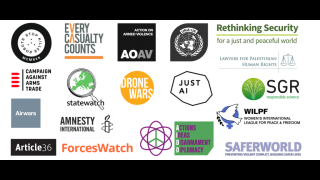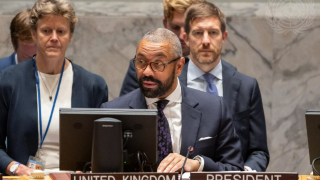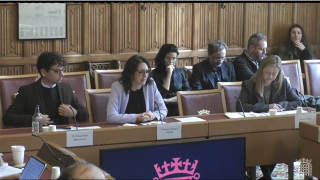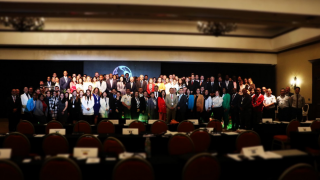
At a meeting of the UN Convention on Conventional Weapons (CCW), states have begun a first round of discussions on ‘lethal autonomous weapons systems’, also known as killer robots, in an informal meeting of experts taking place in Geneva from 13-16 May 2014. This is the first time governments have had dedicated discussions on the issue, following last year's launch of the international Campaign to Stop Killer Robots, of which UNA-UK is a member.
Governments, civil society, international organisations and other experts, will discuss technical, ethical, legal and military/operational issues around these weapons systems, and the French Ambassador who is chairing the meeting will issue a report on the final day summarising the discussions. A decision on next steps will be taken at the annual meeting of the Convention on Conventional Weapons in November.
Why
There is widespread concern that autonomous weapons systems cannot be guaranteed to predictably comply with international law. There are also moral, ethical and technical concerns associated with these weapons. For these reasons, the Campaign to Stop Killer Robots is calling for a new international treaty to be developed to prohibit fully autonomous weapons.
Although fully autonomous weapons are not yet in operation, a number of states are well underway with research, development and testing of related technologies. Weapons with greater levels of autonomy are already starting to be put into action. The UK began testing its autonomous unmanned intercontinental combat aircraft last year. The US has developed the x47-b that can now take off and land on aircraft carriers without human intervention. China has been developing the Anjian aircraft for autonomous air-to-air combat. There are also parallel developments with ground, sea and submarine robots. There are numerous existing weapons that use sensors to identify, home in on and attack pre-programmed types of target.
Who
All 117 states that are party to the CCW can participate in discussions and other states as well as non-governmental and international organisations can take part as observers. The French Ambassador Jean-Hugues Simon-Michel will chair the meeting.
Image: BAE Systems Taranis - a British demonstrator programme for Unmanned Combat Air Vehicle (UCAV) technology






